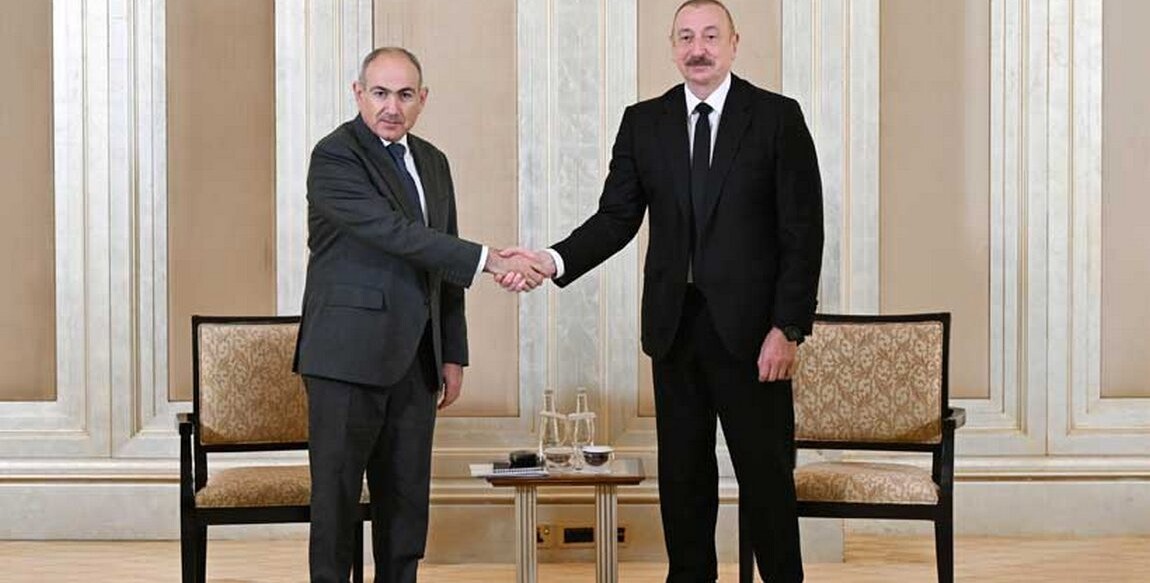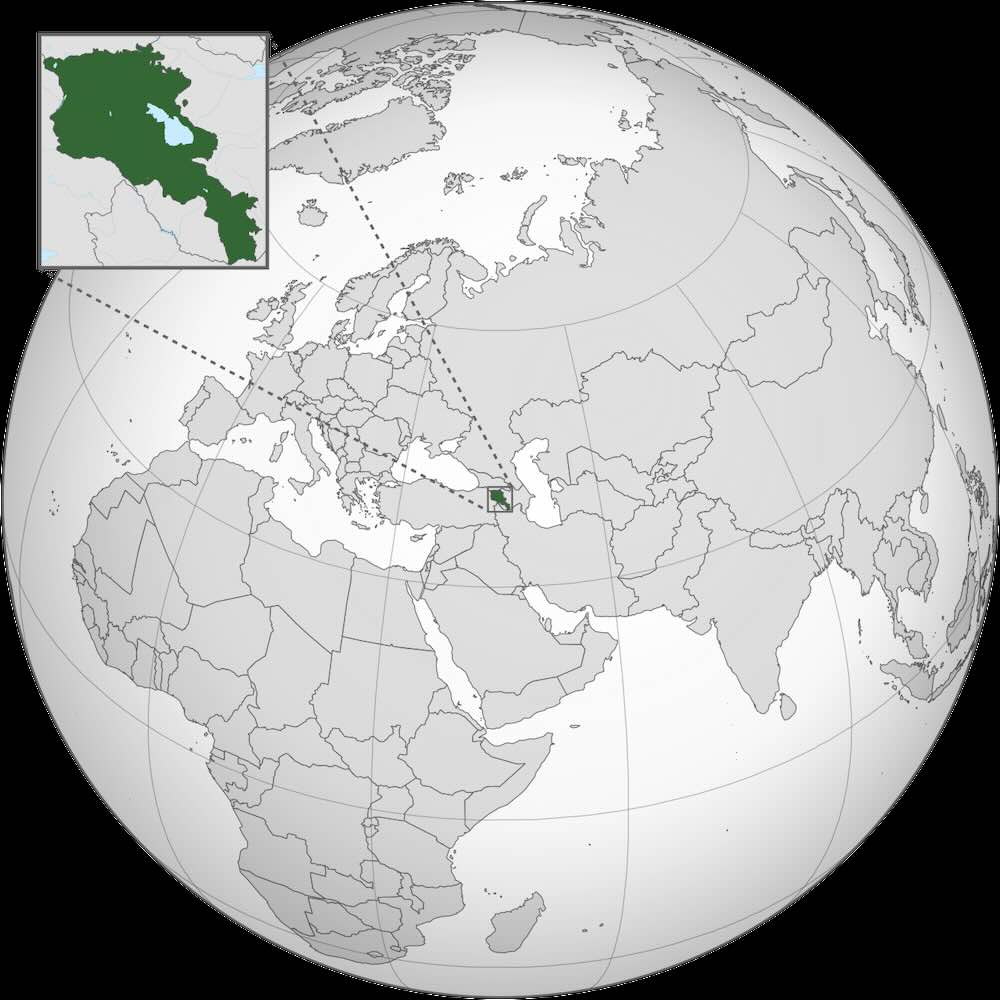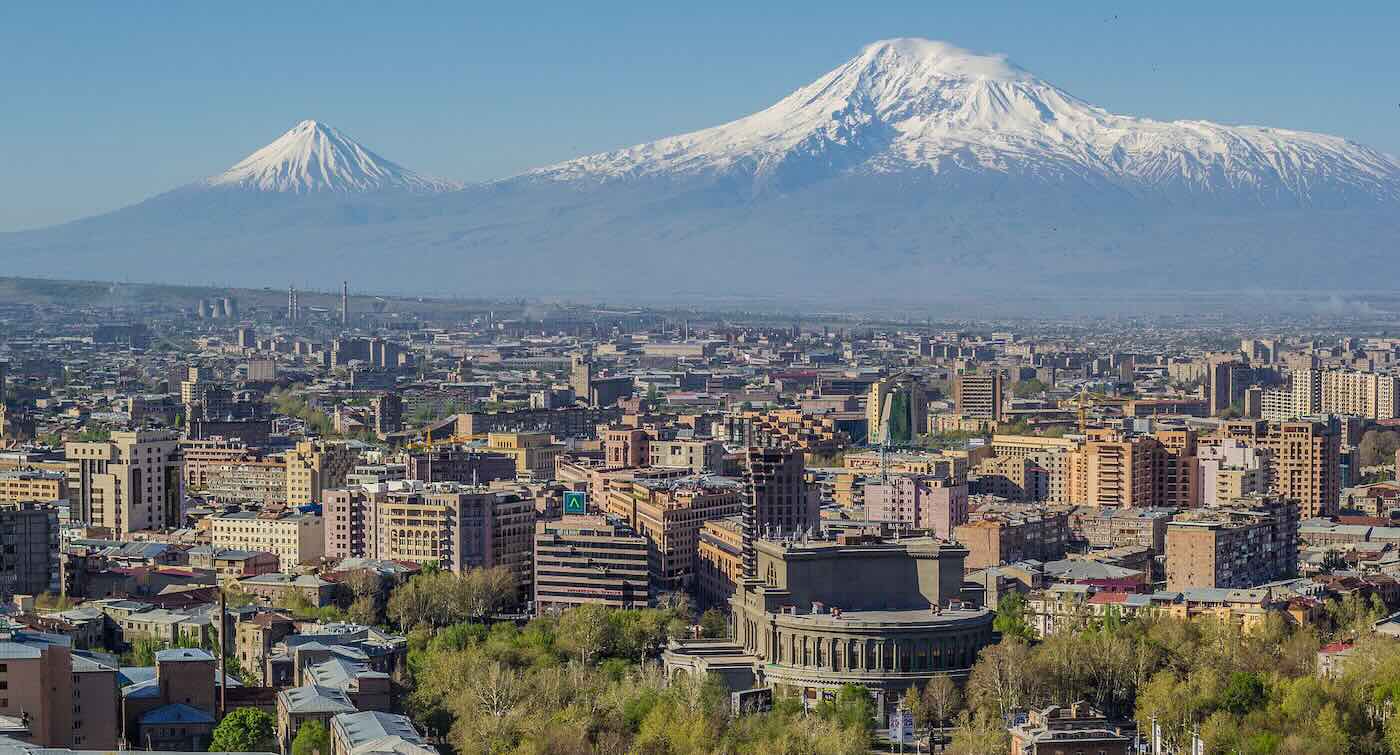Nobel-Worthy Prime Minister Attempts To End Century Of Ethnic Hatred For Armenians

“Blessed are the peacemakers, for they shall be called sons of God.” (Matthew 5-9)
It’s a quote befitting the actions of the world’s oldest Christian nation, especially because its government just concluded a landmark agreement for peace and reconciliation rarely seen in a post-World War II era.
Armenian Prime Minister Nikol Pashinyan has made an enormous step towards a lasting peace with hostile neighbors Azerbaijan and Türkiye (Turkey) by establishing formal diplomatic relations, and making an impassioned plea to his people to reject old hatreds.
The PM, who maintains a mere 13% approval rating—which still makes him the most trusted politician in Armenia—recently went viral on social media for a speech he gave before his parliament in which he called on the country to reject “Soviet KGB narratives” that pitted Azerbaijani against Armenian.
“We say ‘a Turk remains a Turk,’ and they have the same saying there too—that Armenians remain Armenian,” said Pashinyan. “We must change the content of our own identity, because the content of this identity was formed in the corridors of the KGB.”
Nonpartisan and Turkish-language comments on the post suggested the PM should receive the Nobel Peace Prize, while Armenians were predictably angry at the notion. One can hardly blame them because of their long history of war and hatred.
But any realpolitik analysis would conclude that Pashinyan and Armenia have no cards to play, no allies to turn to, and no leverage to lean on. No chariot of international jurists have come to their rescue at the World Court, and no United Nations Security Council actions could make Azerbaijan believe it is in any danger of sanctions or bombing.
"We have to get out of the images of the world created for us by the KGB agents."
Armenian PM Nikol Pashinyan called for breaking free from KGB-era mindsets and fostering good relations with neighbours pic.twitter.com/pMpjmyOLeu
— TRT World (@trtworld) November 3, 2025
Finding benefits at the end of war
In the last five years, Armenia and Azerbaijan have fought two wars about the ownership of land, the unique territory of what is called Artsakh by the Armenians and Qarabaq by Azerbaijan, with thousands dying.
Few but their enemies could find fault with the Armenian people’s anger at both their losses in 2020 and 2023. Turkiye flooded Azerbaijan with more sophisticated weapons, while Armenia received far less from a Russian government occupied with concerns over Ukraine. When in September 2023, Azerbaijan launched a surprise attack on the territory, it decisively ended the kinetic dispute over the area that had been ongoing for more than a century.
The victory was totally decisive and left behind neither insurgency nor resigned population; the Azeri forces booted out the Armenians remaining in the Artsakh area who didn’t flee, sending them into Armenia as refugees.
“From the most Machiavellian perspective, one sympathizes with Pashinyan,” World at Large wrote in an analysis on the subject. “His nation of a few million people is neither in NATO nor in the EU. It’s sandwiched between geopolitical entities with which it maintains historic animosity, but whose favor larger powers like the US or China must court in order to advance their interests.”

International law scholars described it as at least a crime against humanity, most-likely ethnic cleansing, but despite official accusations flying at Azerbaijan from the European Parliament and UN Refugee Agency, nothing by way of punishment manifested from the outrage.
But there may be something positive born from the outcome.
Corridor to peace
For the Armenians who suffered a genocide at the hands of the Ottoman Turks during World War I, it was another episode in their long, tragic relationship with the Turkish peoples to their east (Azeri) and southwest (Turkiye).
But rather than lead his people to rage against their circumstances for another 100 years, and seeing a situation that could be reversed neither militarily nor diplomatically, Prime Minister Pashinyan has seemingly condemned his political career in a desperate attempt to close the book on war between Armenians and Azeri forever.
Few if any heads of state in the post World War II era have repaid crushing defeat with an offer for peace and concession—not even the Buddhist Monarch known as the Dalai Lama— and many of Pashinyan’s opponents have let him know exactly what they think of him for doing so, accusing him of capitulation, appeasement, betrayal of Artsakhis, and historic revisionism.
With the official establishment of relations with Azerbaijan, signed at the White House on August 8th this year, Pashinyan achieved a substantial mote of progress towards extirpating Armenia from its racial struggle against the Turks—which offers economic benefits to the smaller nation.
Azerbaijan has maintained a blockade on Armenia since 1989, blocking passage of goods traveling south from Russia over the Caucasus. In 1993, Turkey joined the blockade, preventing rail and road traffic from Europe to Armenia. This dual blockade is broadly considered to have led to acute shortages of essential goods, an energy crisis, unemployment, emigration, ecological damage, and widespread poverty in Armenia.
By extending a hand in defeat to the conqueror, Pashinyan secured the lifting of the embargo on the Azeri side. On November 4th, 2025, approximately 1,050 tons of Russian wheat, loaded into 15 train cars, cleared Azeri customs on route to Armenia, the first time such a transit has happened in almost 40 years under normal circumstances.
The Transport Ministry of Russia announced that a total of 132 train cars of wheat will be dispatched to Armenia through Azerbaijan by the end of this year.

TURKISH POLITICS: Kurdish Militant Group Agrees to Swap Guns for Ballots and End 40-year Insurgency with Turkey
Despite the complexities of the Artsakh conflict, another territorial challenge exists that Pashinyan and his negotiators have seemingly solved. A piece of Azerbaijan called Nakhichevan lies geographically separated from the rest of the country bordering a strip of Armenian territory; it’s an exclave that could only be reached via plane.
In an op-ed published in Modern Diplomacy two days before the peace agreement was signed at the White House, the former Foreign Minister of Armenia identified this corridor as the single most important challenge to relations between the countries, as Azerbaijan seeks to create a corridor of transit through Armenia.
“The corridor represents a unilateral attempt to establish extraterritorial control over Armenian land,” wrote the former FM, Vartan Oskanian. “Azerbaijan seeks not just transit access but a corridor stripped of Armenian customs, legal authority, or security presence—a demand no sovereign state should accept.”
Yet the result of the agreement was that neither Armenia nor Azerbaijan, but rather the United States of America, would develop the corridor and see to its security. Eurasian political strategists in Washington consider the corridor’s stability and peace to be of utmost importance, as it offers the US for the first time in history a way to transit the entire Asian continent without ever needing to pass through Iran or Russia.
The only remaining challenge, and indeed it wasn’t addressed in the peace agreement, is how to secure the right-of-return for Armenians to their ancestral homes in Artsakh. Rhetorically, the Azeri government has said that they will be allowed to return if they come in peace, but reports suggest that local policy is drastically different.
Before any such change can be made on paper, Pashinyan seems to understand that a change needs to be made in the mind, that Azerbaijanis and Armenians need to see the other as a good neighbor before they can see each other as a potential neighbor.
MORE INTERNATIONAL PEACE AGREEMENTS: Unconditional Ceasefire Holds Between Cambodia and Thailand, in Conflict Over Disputed Border
His plea to reject KGB narratives that have driven Armenians to spit out prejudicial tropes about Azerbaijanis which “mirror” those that Azerbaijanis spit out about Armenians is a powerful call to attention; a rejection of an era of ethnic hatred now forever concluded by the fate of geopolitical circumstances.
Thomas de Waal, a scholar and expert on the Caucasus at the Carnegie Endowment for International Peace, described the agreement as “one big step forward that stabilizes the South Caucasus,” before warning that “several more are needed before full peace can be attained.”
The progress, he wrote, is chiefly thanks to the persistence of Nikol Pashinyan.
“He essentially tells voters that, having suffered major military defeats to Azerbaijan in 2020 and 2023, Armenia must now accept a new reality: that it must try to make peace with Azerbaijan and Türkiye, open its borders and connections to Europe, and free itself from a dangerous dependence on Russia.”
The right of return is far more likely to be granted to a nation that genuinely favors good relations and economic exchange than to one which angrily demands it and enlists outside forces like the EU to argue on its behalf. Pashinyan is inviting the people of his country to create those conditions as a path forward.
Throughout history it is hard to find a parallel. Gandhi and Mandela weren’t heads of state and weren’t defeated in battle.
The safest borders today are located where peace was paired with a genuine good faith desire to secure better times—Ireland and Northern Ireland—for example, or Germany and its neighbors.
Time will tell whether the Pashinyan peace will last, but if it does, he may well come to be one of this century’s greatest peacemakers—who undid one of the world’s great Gordian knots.



Please be good and do not spam. Thank you.